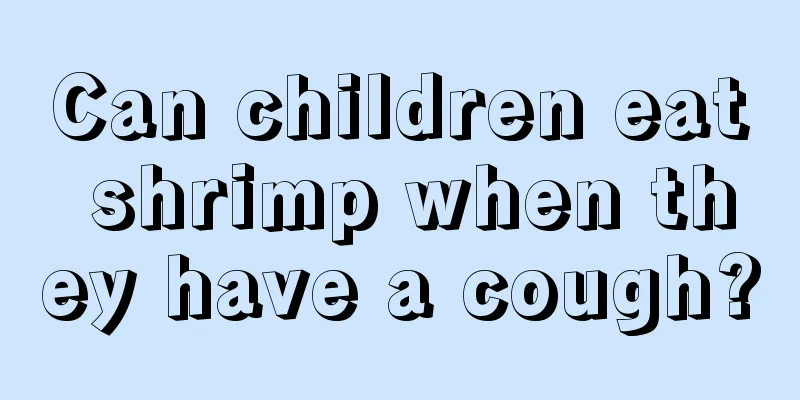How to determine whether a baby is anemic

|
We all know that newborn babies are weak, and many mothers will find that their babies have anemia. How to determine whether your baby is anemic? What are the symptoms of anemia in babies? What should you do if your baby is anemic? I believe these are questions many mothers want to ask. Today, the editor will solve these problems for all mothers, and hope it will be helpful to all mothers. Indicators for determining anemia in infants Anemia is when the amount of hemoglobin or the number of red blood cells per unit volume of blood is lower than normal. Anemia is a common symptom. The domestic diagnostic standard for pediatric anemia is: newborn hemoglobin (Hb) <145g/L within 10 days after birth; for infants aged 10 days to 3 months, it is difficult to determine the standard for anemia due to factors such as "physiological anemia". It is recommended to temporarily use Hb <100g/L; Hb <110og/L for infants aged 3 months to less than 6 years; Hb <120g/L for infants aged 6 to 14 years. Among various anemia diseases in children, nutritional iron deficiency anemia is the most common. Common symptoms of anemia in infants Pale complexion, pale lips and nails; increased breathing and heart rate; decreased appetite, nausea, abdominal distension, constipation; lack of energy, poor concentration, irritability, etc. Older children may also experience headaches, dizziness, black spots in front of the eyes, etc. Children who have been ill for a long time often become easily fatigued, have dry hair, and have delayed growth and development. The main manifestations of iron deficiency anemia include gradual paleness of the skin and mucous membranes (the color of the lips and nails is most obvious), decreased appetite, vomiting or diarrhea. Some children may also develop pica, such as a liking to eat dirt, wall paint, etc.; mental fatigue or irritability, inattention, decreased intelligence, etc. What to do if your baby is anemic 1. Supplement iron-containing foods, such as iron-fortified infant formula, iron-containing rice flakes or iron-containing vitamin drops, etc. At the same time, you should also supplement with foods rich in vitamin C, such as tomato juice, vegetable puree, etc., to enhance iron absorption. In addition, when the baby starts eating solid food, he should also be fed more foods containing high levels of iron, such as egg yolks, rice porridge, vegetable porridge, etc., but sugar should be avoided because it will hinder the absorption of iron. 2. Always pay attention to your baby's physical condition. If necessary, conduct a hemoglobin test on your baby, because babies with mild anemia cannot show it from the outside. If the baby's hemoglobin is too low, it means that he has anemia and he should supplement iron in time and eat foods high in iron. Adults can suffer from anemia, and newborn babies can also suffer from anemia. At this time, mothers should pay more attention to the baby's physical condition. I hope that this article about baby anemia shared by the editor can be helpful to all mothers. At the same time, the editor hopes that every baby can have a healthy body and grow up healthily. |
<<: Can honeysuckle be used to treat baby eczema?
>>: What causes white spots in baby's mouth?
Recommend
Is it okay for kids to do sit-ups?
Children are in the stage of physical development...
Urticaria in children
Urticaria in children is a common allergic skin d...
What to do if your baby coughs after choking on milk
Many women are first-time mothers and have no exp...
Caring for the growth of mentally retarded children
Mental retardation is not an insulting name, it i...
How to treat children's eye twitching
The healthy development of children is the wish o...
What are the methods for breast enhancement for adolescent girls?
Adolescence is a developmental process. Our bodie...
Is it too late for a child to lose teeth at the age of seven?
Children start to change their teeth when they ar...
Factors that cause drooling in seven-year-old children
Every parent hopes that their children can grow u...
9 principles for using air conditioning on children in hot weather
As the weather gets hotter in summer, whether or ...
What are the treatments for a three-year-old baby with fever and cough?
When a three-year-old baby at home has a fever an...
Causes of nosebleeds in children in spring
Many parents have found that children in their fa...
How to train students' memory
If you want to study well, memory is also very im...
What are the benefits of letting your baby sleep alone?
Nowadays, many parents are particularly doting on...
What is the reason for the yellowing of baby's deciduous teeth?
Many parents pay special attention to the health ...
The urine smells very strong
The baby's urine has a very strong ammonia sm...









